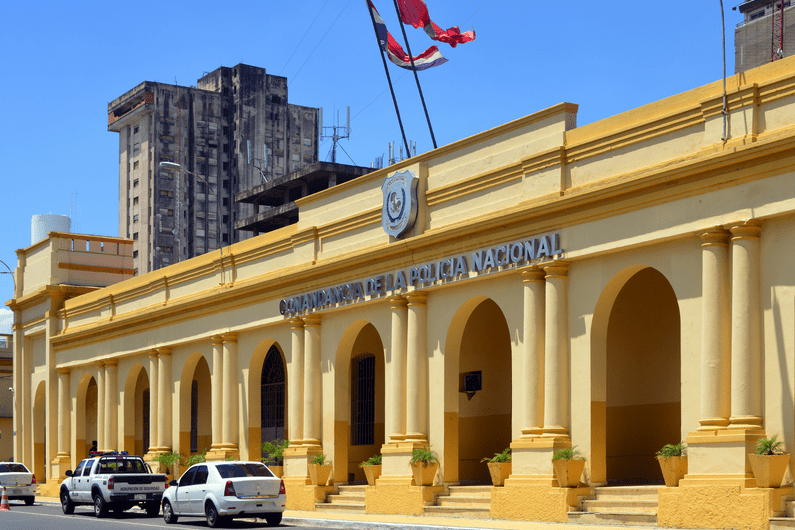Following the initial engagement with the Unidad Especializada de Delitos Económicos y Anticorrupción (UDEA) in Paraguay, the focus transitioned from setting high aspirations to enacting meaningful actions. Managed by Alinea International, the training under the Government of Canada Technical Assistance Program (TAP-EDM) sought to not only bridge skill gaps but also to embed a sustainable framework for ongoing improvements and capacity building. See Part 1 Transforming perceptions and practices in Paraguay’s fight against corruption.
This second part of the series delves deeper into the specifics of the training objectives and strategic initiatives that were implemented.
Strategic capacity enhancement
The five-day intensive training program with the UDEA encompassed several critical areas aimed at boosting their operational effectiveness.
- Prioritizing with precision: I tackled the essential need for an effective triage process by introducing best practices from global experiences, ensuring that UDEA could strategically allocate resources to prioritize high-impact corruption cases.
- Cultivating multi-agency collaboration: Significant time was devoted to dismantling operational silos and fostering a culture of shared objectives. This initiative aimed to enhance the success rate of investigations and prosecutions by promoting a united front against corruption.
- Comprehensive approach to corruption: The strategy sessions focused on targeting both bribe givers and takers, expanding UDEA’s operational scope to disrupt the entire corruption cycle comprehensively.
- Engagement and prevention strategies: I stressed the importance of crafting a prevention and outreach strategy that focuses on public engagement, particularly with vulnerable groups. This proactive approach aims to build community trust and encourage active participation in anti-corruption efforts.
The ripple effect of empowerment
The training provided more than just knowledge transfer; it served as a robust tool for empowerment, enhancing the UDEA team’s confidence and reinforcing their commitments to improve their processes and strategies.
A critical component of the program involved participants developing actionable plans for addressing the four key issues above, alongside a strategic framework for implementing these plans. This approach ensured that the shared knowledge and best practices would lead to tangible improvements, empowering participants to take ownership of both the process and the outcomes.
One particularly impactful moment was the renewed dedication of a young prosecutor who had been on the brink of resignation. The training not only equipped him with the necessary tools but also reignited his passion for justice. His decision to stay and fight corruption was a profound testament to the transformative power of targeted training. This outcome is arguably the most powerful and rewarding feedback a trainer can receive, and it has profoundly redoubled my commitment to continue this vital work.
A call to action for E&C professionals
This transformative experience in Paraguay is a clarion call to all ethics and compliance professionals to recognize the significant impact we can make. By sharing our expertise and passion, we can assist individuals, organizations, and even nations in enhancing their capacity to tackle corruption-related challenges. It underscores the necessity for E&C professionals to promote and support collective actions that drive substantial change.
As we advance our collaborative efforts, let us be inspired by the dedication of the UDEA and their international partners. Let this narrative encourage us all to contribute actively to a global culture where corruption is not an insurmountable barrier but a challenge that we are well-equipped to overcome through solidarity, innovation, and unwavering commitment to integrity.
Together, we have the power to not only bridge gaps in governance and compliance but to foster a future where ethical conduct is the cornerstone of all institutions. Let’s continue to inspire, engage, and empower each other in this vital global endeavor.
For me, I continue to support and advise the UDEA team in the development of their plans and will be going back to Paraguay to help them finalised them. I suspect I will also be involved in the operationalization of these plans and am committed to help them succeed.
I will also be working with universities and other stakeholders in exploring the creation of a Paraguayan Centre of Excellence modeled on the Canadian Centre of Excellence for Anti-Corruption (CCEAC). Anyone interested in assisting us in this collective action effort is invited to contact me at pat.poitevin@cceac.ca.
Pat Poitevin, CACM, TASA: Corporate ethics, compliance and financial crime expert.
Pat is the Co-Founder & Executive director for the Canadian Centre of Excellence for Anti-Corruption (CCEAC) & CEO of Active Compliance and Ethics Group Inc.












